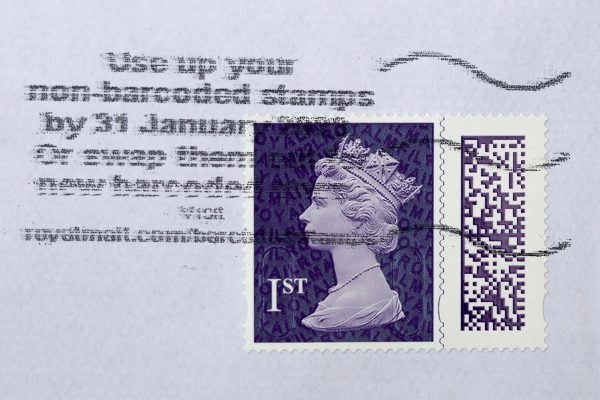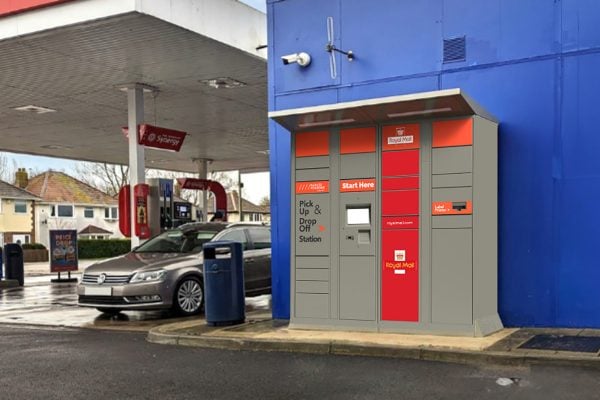Royal Mail saw a drop in profits in the first half of 2014. Operating profits (excluding transformation costs) declined to £279m (21%) in the six months to 28th September.
Whilst parcel volumes grew by 2%, pricing pressure (remember they reduced some prices?) meant that Royal Mail’s UK parcels revenues declined 1% to £1.5bn in the period. UK letter revenues rose 1% to £2.2bn but volumes dropped 3%. Revenues were aided by price increases and election mailings (for the European Election and the Scottish Referendum).
The cause of the drop, according to Royal Mail was stiff competition. Amazon’s own efforts were cited as hampering growth and whistl (previously known as TNT) also called outs a key competitor.
Moya Greene, Royal Mail’s chief executive, said: “The UK parcels market remains challenging. As the pre-eminent UK parcels delivery company, we are targeting a number of new, growing areas, and delivered 2% volume growth in a competitive market. We had a better than expected performance in UK letters.”
Of course, one of the real problems has been Royal Mail’s slow innovation. Even a year into privatisation is hasn’t proved nimble in utilising its assets to respond to the new trends in delivery: same-day, convenient pick-up points, weekends.
I find it particularly absurd that the opening times at my local sorting office, so I can pick up parcels I’ve missed, only offer one time after 14:30 a week and are closed entirely on a Sunday.
Royal Mail also noted that the universal service was proving a burden to their competitiveness, Tamebay wrote about that earlier.








9 Responses
Royal Mail seems to be a business that can only get 1 thing right and that’s delivering mail. And that’s down to the individual people working as a chain together to get it done.
Their list of account types for businesses is staggering, the names of services in almost contant flux.
Their means of communication with account customers is laughable and must be a huge drain on profits and resources. There are not many months where I don’t received 3 peices of expansive looking fold-out information leaflets about services I don’t have, don’t want, don’t need, and becuase “they’ve changed the name again”, I haven’t heard of.
Privatisation doesn’t seem to have done them any favours, they’re still blundering about like moths.
It’s s shame really.
They need to run things right and yes there is competition so they need to be competitive!
They reduced the size of small parcels ridiculously, forcing lots of us to try out couriers instead. And given the push, we found the couriers also gave insurance! And were cheaper! And gave tracking! So then they increased the size of small parcels to 2 different shapes your parcel had to fit into. Then they realised this was just daft and have recently combined those into one bigger shape!! Too late Royal Mail, I am a only a small business, but mine has now gone elsewhere.
They have also stopped collecting from my local post boxes after 7am! I sell lots of cards, and if I want to post same day instead of popping to the local box, I now have to go to the shops and find a place to park – not funny – or they don’t go until the next day. Not found a solution to this yet though.
Come on Royal Mail you can do better. No wonder profits are down.
As soon as we can ditch Royal Mail we will. They lose parcels and really do not care about it at all and we are a big account for them
What a load of Bollocks!
RM profits are down because they whacked up prices to such a degree that its now cheaper to send ANYTHING above Large Letter by courier.
I guess they thought it necessary to increase costs by about 30% in 2013 and a further 15% in 2014 in order to make Privatisation attractive.
Add to that the price increases in 2011 and 2012 and RM have almost doubled prices in 4 years whilst at the same time service levels are been reduced.
No suprise that couriers are doing well and RM revenues are falling.
Personally, 4 years ago 95% of all my UK orders went RM, now its about 3% (and thats only if its Large Letter or smaller).
RM privatisation is a great example of selling the family jewels. In the long run it will bring no benefit to the customer. The only winners are institutinal investors. Bank of England’s gold sale is another example of stupidity. Time and again we have seen this happen and it never works in the long run (think Gas, Electric, BT, Trains….. etc). Essential services and national assets should remain in the public sector. Once privatised prices jump and we all foot the bil, and for what? A small injection into Government coffers? Is it really worth it?
Yet again, we fail to learn from the past.
royal mails dominant market position was undermined by being state run ,
hands were tied when competition came along they could not alter methods quickly ,
buy ,or compete with private parcel companies due to bearuacracy and regulations , in fact in some situations due to state regulations they are forced to actively help their competitors